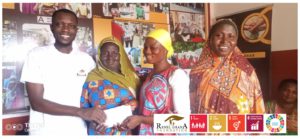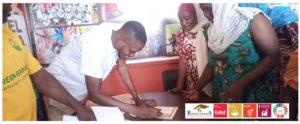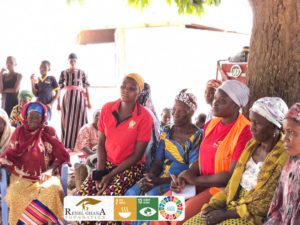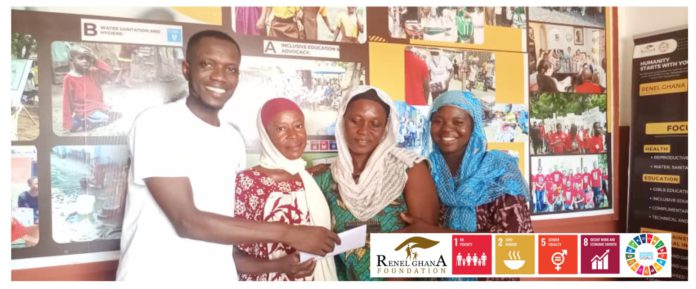Renel Ghana Foundation has embarked on a collaborative mission with women-led group of farmers in the West Mamprusi Districts and its environs; Kperigu, Sangdafongu and Loagri, Wungu.
The primary objective of this initiative was to engage with these local female farmers to better understand the challenges in their farming activities.
It was also to identify the necessary resources and support they require to enhance their productivity.
The team from Renel Ghana paid homage to the chiefs to express their interest in improving livelihoods in their communities.
On April 8, the team led by our North-East zonal coordinator Alhaji Yahaya Alhassan Basigi, was warmly welcomed by the women-led group farmers, who expressed their interest and eagerness to share their experiences and challenges.

The meetings commenced with open dialogue sessions, where we made known our mission during which the farmers also voiced various obstacles hindering their farming endeavors.
One of the prominent challenges highlighted by all the women farmers was the lack of access to modern farming techniques and technologies to plough their lands.
Many expressed their desire to utilise skills and tools to increase productivity. They lamented the absence of funds to hire Labour or acquire trucks.
Additionally, inadequate access to quality seeds (groundnut, rice, soya beans, and corn, which are the major crops in the area) is difficult.
Fertilizers, weedicides, pesticides and irrigation facilities emerged significant impediments to improving agricultural output in the communities during the dry seasons.

One of the women from the Sungtaba group said that “We always have to wait for the men finish spraying before they lend their knapsack.
“This is not helpful as the crops have time to be sprayed to avoid the weeds from blocking them. By the time the men give us the sprayers, it would be too late to protect the seedlings. We would love to have our own knapsack sprayers to assist us spray the weeds on time.”
The farmers also cited limited access to large barns to store their produce. Due to this problem, they are unable to store and sell leftover produce during the dry season.
One of the women farmers from the Sangkiti farm group explained that: “I always have to move to the south during the dry season to earn some income through Kayaye business to raise funds to support my children’s education.”
The narrative would have been different if they had enough storage rooms where they could keep produce to be sold in the dry season at good prices.
In response to these pressing concerns, the Renel Ghana Foundation pledged its commitment to supporting the women-led group farmers in overcoming these challenges.
The Foundation also expressed its intention to collaborate with local authorities and other stakeholders to explore opportunities for infrastructure development, such as improving irrigation systems and enhancing larger storage rooms for the groups.

On 28th May, 2024, the Foundation in fostering partnerships and leveraging resources supported the five Women groups with resources to farm groundnut on 5acres of land each from the Ploughing stage of through to the harvesting.
Again, they are training them on how they can manage their savings book. This is to empower them with financial literacy and independence.
This aims to create a conducive environment for sustainable agricultural practices and economic empowerment within the West Mamprusi Districts and its neighbouring communities.
In conclusion, the collaborative visit between the Renel Ghana Foundation and the women-led group farmers in West Mamprusi District marks the beginning of a promising collaboration aimed at addressing the challenges faced by the women farmers.
Through collective efforts and targeted interventions, it is envisioned that these farmers will not only enhance their productivity but also improve their overall livelihoods, contributing to the socio-economic development of the community as a whole.
Renel Ghana Foundation believes that this initiative will address Zero hunger (SDG 2), No Poverty (SDG 1), Sustainable Cities and communities (SDG 11), and Responsible Consumption and Production

